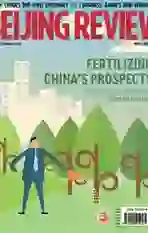New Delhi Book Fair:Nine-Day Wonder?
2016-01-21BySudeshnaSarkar
By+Sudeshna+Sarkar
India and China are close geographically, their trade ties are rising and there is growing concurrence between them on global diplomatic issues. Yet the Beijing International Book Fair is virtually a closed book to Indian publishers, even though India was the guest of honor at the fair in 2010. Historically, the same behavior could be found at the New Delhi World Book Fair with Chinese publishers.
The annual Delhi event, though among the largest in the world and entering its 42nd year, has been unusually lackluster where Chinese books and publishers are concerned. In 2015, book fair consultant and avid fair visitor Hersh Bhardwaj reported spotting just “one lone Chinese presence” at the sprawling Pragati Maidan site. The singular presence of Bob Song, President of Royal Collins, China, was strange given that two years earlier one Chinese exhibitor, Guo Tan, had his books lapped up by visitors, especially Indian students learning Chinese at Delhi University and the Jawaharlal Nehru University.
Besides a demand for books written in Chinese among Indians learning the language and starved of relevant books, there is also a lot of interest among the Indian intelligentsia in Chinese literature, history, philosophy and business culture. To them, Confucius is as familiar a name as Alibaba. Long before Chinese writer Mo Yan received the Nobel Prize for Literature in 2012, there was literati Lu Xun (1881-1936), who has been translated into several major Indian languages.
At an age when tech brands such as Lenovo, Huawei and Xiaomi are familiar presences at Indian IT and trade fairs, the absence of Chinese pavilions in the Delhi book fair is baffling. But now it seems that the trend is about to change.
When the nine-day New Delhi World Book Fair 2016 kicks off on January 9, China is going to be the guest country of honor. This seems to be a development from Chinese President Xi Jinpings state visit to India in 2014 when he and Indian Prime Minister Narendra Modi agreed to step up bilateral cultural exchanges.
China was subsequently the guest of honor country at the 45th International Film Festival of India the same year. The two neighbors also agreed to enhance tourism cooperation. While 2015 was the Visit India Year in China, 2016 will be celebrated as the Visit China Year in India.
Cordial relations between neighbors and enhanced cooperation are always a good thing. However, I am skeptical about how effective the Delhi book fair will be toward the achievement of these goals.
Organized by the National Book Trust under the aegis of the Indian Ministry of Human Resource Development, the fair suffers from the ineptness associated with most government programs in India. Less than a fortnight before the inauguration, the fairs website was unhelpful, lacking information about the events, participants or anything else. In some ways, it was an echo of the Visit India Year in China in 2015, a program marked by total invisibility in India. This is a pity, given the potential of Sino-Indian publishing synergy.
Indian writing, especially textbooks, would have a huge market in China among English readers, especially coming in with a price advantage against Western publishers. Perhaps more importantly, collaborations among Chinese and Indian publishers could result in cheaper books and a larger market. Chinese e-commerce giant Alibaba Groups founder Jack Mas authorized biography, set to be published by GBD Books of India in collaboration with Royal Collins China, is a step in that direction.
The promising thing is that the private sector has already taken the initiative. At the smaller but largely popular annual book fair held in Kolkata, Chinese writing and culture are represented by Zhongwen Xuexiao, a local school of Chinese language. The schools Vice Principal, Karisma Shroff, told me how their pavilion did brisk trading, with everything being sold out—from dumplings and chopsticks to Chinese calligraphy materials.
My best memory of Sino-Indian bibliographical collaboration is from the Apeejay Kolkata Literary Festival in 2011 where the focus of the visitors was the Chinese novelist and screenwriter Bi Feiyu, who won the Man Asian Literary Prize for Three Sisters in 2010. Bi was invited to have a conversation with Indian historian and author Sugata Bose. He did not speak English, nor did Bose speak Chinese. So Abhijit Banerjee, head of Cheena Bhavan, one of the oldest Chinese schools in India, effortlessly stepped into the breach, translating for both.
